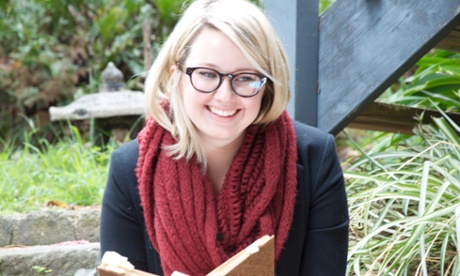
The shortlist for Australia’s all-female literary award, the Stella prize, was announced on Thursday, celebrating six female authors for their contribution to literature, including two debut novelists and an increased prize pool.
The shortlisted authors include Hannah Kent for Burial Rites, and Fiona McFarlane for the Night Guest, first novels for both. Kent and McFarlane appear on the list beside Anna Krien (Night Games), Kristina Olsson (Boy, Lost: A Family Memoir), Alexis Wright (The Swan Book) and Clare Wright (The Forgotten Rebels of Eureka).
McFarlane told Guardian Australia being shortlisted was thrilling.
“It’s incredibly encouraging when it’s your first book to have it acknowledged like this,” she said.
The Night Guest explores the life of a 75-year-old widow who believes she can hear a tiger in her house.
“The themes of exploitation and invasion are subtly woven into the main story of ageing and decline, and McFarlane uses the symbolic and the surreal in ways that linger in the reader’s mind long after the book is closed,” said the judges.
McFarlane said she was drawn to the presence of the tiger throughout literary history, particularly in children’s books.
“I wanted to see what would happen when you put this nursery tiger in the home of a modern elderly woman,” she said.
The book has been sold around the world, a feat McFarlane said was unexpected, “especially considering what my book is about. Obviously I am thrilled and delighted.”
The award, now in its second year, received more than 160 entries. A longlist of 12, then the shortlist of six, were chosen by a panel of writers and critics including journalist and broadcaster Annabel Crabb, author and academic Brenda Walker, bookseller Fiona Stager and writer and lecturer Tony Birch.
The eventual winner, to be announced at a ceremony in Sydney on 29 April, will receive $50,000. All the other five shortlisted authors will receive $2000.
The change is a nod to last year’s winner, Carey Tiffany, who shared her prize money with her fellow shortlisted authors.
“The Stella prize, as it has already demonstrated in its openness and flexibility, is an opportunity to do things differently,” said Tiffany in her acceptance speech.
“When you give writers money you are actually giving them time. And, quite frankly, if I can hasten the next books of these fine writers a little – well why wouldn’t I?”
McFarlane said she completely agreed with Tiffany’s sentiments.
A financial prize “has the most enormous impact imaginable”, she said.
“Time is what we need most, including time from from certain kinds of distractions and anxieties.”
Sam Meers, co-founder and trustee of the Nelson Meers Foundation, which provided the prize money for the shortlisted authors, said: “We hope that the prize money not only enhances this achievement, but will also provide the opportunity for a research trip, or some time away from paid work, to assist these talented writers to complete their next book.”

